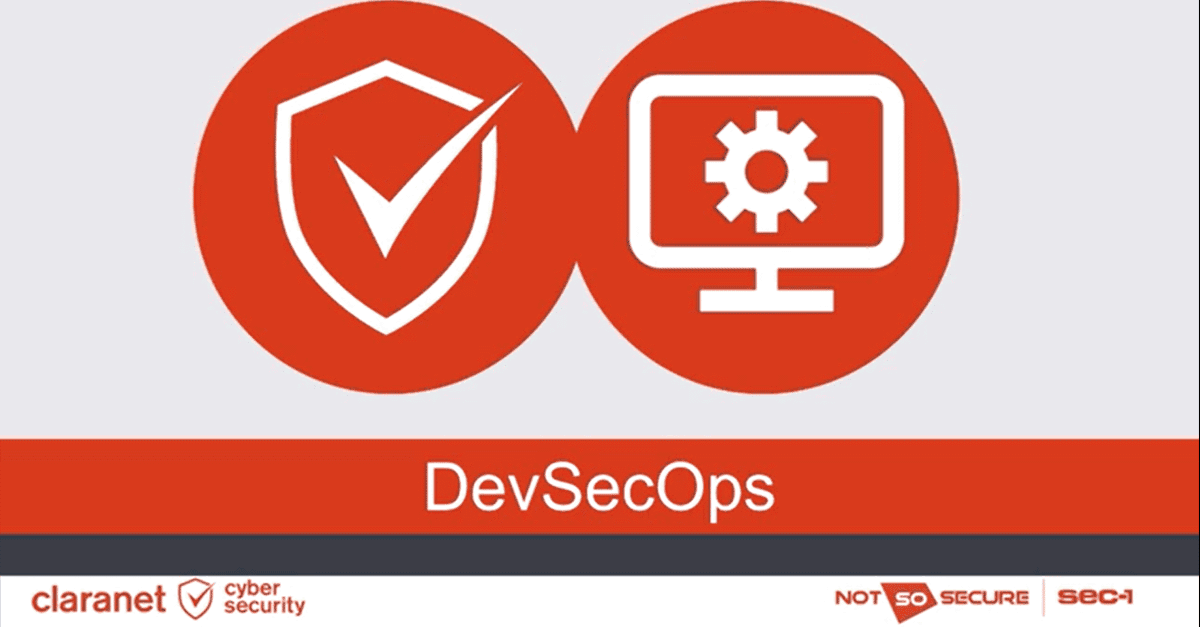This one-day advanced course focuses on automating security in an agile DevOps environment using various open source tools and scripts.
The course is now available as live online training and can be held for you individually or for your company. Contact us below with your requirements.
At the end of the course, participants will be able to:
- Create a new security culture/mindset within an existing DevOps team,
- Find and fix low-hanging fruits such as SQL injections, XSS and unsecured libraries and dependencies as early as possible in the SDLC by making cybersecurity part of the CI/CD,
- Set up a system with continuous security monitoring.
Course participants receive:
- Participants will receive a DevSecOps lab VM (developed by the Claranet Cyber Security team) that contains all the code, scripts and tools used to build the entire DevSecOps pipeline
For security and IT decision-makers
What impact does a training course by Claranet Cyber Security really have on your team?
Left-shift your company’s security, make it a less attractive target for attackers and help defend yourself against attacks by building a team that can develop resilient applications and systems with secure practices. At the end of the course, participants will be able to:
- Implement security tools and create and automate secure processes within your DevOps pipelines,
- Secure DevOps environments, from development and staging through to production,
- Confidently use all current DevSecOps technologies covered in this course,
- Understand the commercial impact of DevSecOps principles and communicate this to key stakeholders,
- Solve business and development problems with a security mindset,
- Take on more responsibility in the team,
- Become an advocate for security throughout the company.
Modern companies are implementing the technical and cultural changes required to adopt the DevOps methodology by introducing practices such as continuous integration (CI), continuous delivery (CD), continuous monitoring (CM) and Infrastructure as Code (IaC). DevSecOps extends DevOps by introducing security into each of these practices, ensuring a certain level of security for the end product. In this course we will demonstrate how to implement security in CI, CD, CM and IaC using our state-of-the-art DevSecOps lab.
As part of this course, participants will receive access to the DevSecOps lab, built with Vagrant and Ansible, which includes several open source tools and scripts to help DevOps engineers automate security within the CI/CD pipeline. Although the workshop uses Java/J2EE technology, it is language independent and similar tools can be used for other application development frameworks.
You can see a short preview of our course here:

Introduction to DevOps
- Introduction and Lab Setup
- Challenges with Traditional IT
- What is DevOps?
Introduction to DevSecOps
- Challenges for Security in DevOps
- DevSecOps – Why, What and How?
- Vulnerability Management
Continuous Integration
- Pre-Commit Hooks
- Secrets Management
Continuous Delivery
- Software Composition Analysis (SCA)
- Static Analysis Security Testing (SAST)
- Dynamic Analysis Security Testing (DAST)
Infrastructure as Code
- Vulnerability Assessment (VA)
- Container Security (CS)
- Compliance as Code (CaC)
Continuous Monitoring
- Alerting and Monitoring
- Introduction to F-ELK
DevSecOps in AWS
- DevOps on Cloud Native AWS
- AWS Threat Landscape
- DevSecOps in Cloud Native AWS
DevSecOps Challenges and Enablers
- Challenges with DevSecOps
- Building DevSecOps Culture
- Security Champions
Who Should Take This Class?
DevOps engineers, security and solutions architects, system administrators will strongly benefit from this course as it will give you a holistic approach towards application security.
You will need:
If you have a background in IT or related to software development, whether a developer or a manager, you can attend this course to get an insight about DevOps and DevSecOps.
You should bring a laptop with a minimum 12 GB RAM and 40 GB of extra space and also have administrator privileges. In order to access our labs you'll need an unfiltered direct connection to the internet. Our labs will not be accessible from behind a proxy or a firewalled internet connection









